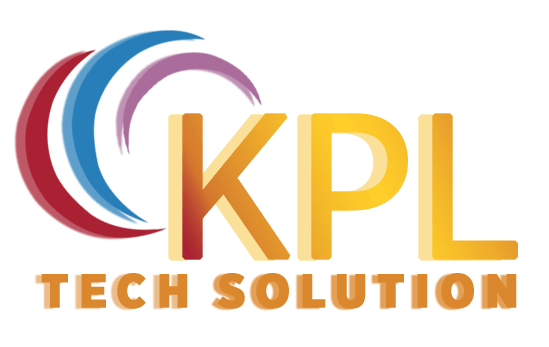

The real estate market today shows a mix of challenges and resilience. While some high-demand areas continue to grow steadily, competition remains tough. As the industry evolves, real estate professionals face diverse challenges from juggling multiple tasks and managing client relationships to delivering outstanding customer experiences.
The rise of digital tools and automation including virtual assistants has marked a transformative era for the real estate industry. From providing professionals with advanced resources to streamline operations and boost efficiency. In this blog, we will discuss how outsourcing tasks to a VA enables businesses to stay ahead in a highly competitive market. Keep on reading!
Your Guide About Virtual Assistants and its Role
A virtual assistant(VA) is a remote professional who takes care of providing support in handling administrative, operational, and client-focused tasks. This enables business professionals to give their best on core responsibilities, ensuring nothing falls through the cracks.
Real estate is a diverse sector, and managing comprehensive tasks—from client calls to updating listings—can hinder the client experience. This is where virtual assistants in real estate make a difference. By taking over responsibilities such as client follow-ups and lead generation, they allow you to focus on what matters most: closing deals and building strong client relationships.
Enhancing Client Communication and Engagement
Hiring a Virtual Assistant for a real estate business provides greater flexibility in appointment planning. With the ability to adapt to your schedule, a VA helps prevent overlapping engagements, giving you ample time to prepare for meetings.
Organizing Schedules and Sending Reminders
A Virtual Assistant in real estate assists in organizing your schedules by automatically scheduling appointments, property showings, and meetings. With timely reminders, such assistance ensures nothing is missed, which reduces the risk of overlooking appointments.
Reducing Double-Booking Mishaps
Double-booking is a common issue that disrupts workflows and negatively impacts client relationships. Virtual Assistants (VAs) integrate with scheduling tools to prevent such conflicts by checking availability before confirming appointments. With real-time updates and notifications, you can be assured that no overlapping bookings occur, ensuring smoother and more professional service.
Personalized Interactions with Chatbots
Chatbots powered by Virtual Assistants are great alternatives to provide instant, personalized responses to client inquiries. They will assist with managing initial client queries, recommending properties to providing information based on client preferences. By analyzing customer data, chatbots offer a tailored experience that enhances engagement, ensuring clients receive relevant and accurate information promptly.
Efficient Email Automation
Streamlining communication through automated email responses helps real estate professionals save time and maintain consistency. Virtual Assistants can provide templates for common inquiries, such as property availability, pricing, and general information, ensuring clients receive prompt and accurate replies. Additionally, automation enables timely follow-up emails, further enhancing the client experience and boosting retention.
Calendar Management for Seamless Scheduling
Get assistance in managing your calendar by automatically syncing appointments, meetings, and property showings, preventing overbooking or scheduling conflicts. This feature is especially valuable in real estate, where appointments are frequent and dynamic. With VAs handling schedule management, businesses focus on client interactions, while ensuring their calendars stay organized and up-to-date without manual effort.
Real-Time Communication for a Personalized Experience
Real-time communication tools powered by VAs allow agents to engage with clients instantly. Whether through live chat, text, or instant email notifications, VAs ensure that clients’ questions or concerns are addressed in real-time. This responsiveness leads to a more personalized experience, enhancing client satisfaction and fostering long-term relationships.
Such 24/7 assistance provides businesses with enhanced client communication, stronger relationships, and a more professional and efficient workflow.
Streamlining Administrative Work
Administrative tasks often consume valuable time and resources that could be better spent on core activities. This is where streamlining administrative tasks becomes important which improves productivity, hence creating a more organized work environment. Here’s how organizations can optimize their administrative processes:
Managing Back-End Tasks
VA has a crucial role in managing back-end operations for real estate business. The role includes organizing databases, managing email correspondence, and maintaining CRM systems. Such assistance enables real estate professionals to focus on client-facing activities and high-priority responsibilities.
Coordinating Projects
An assistant in project coordination ensures all tasks are completed on time. In the real estate industry, this often means managing important timelines such as property showings, contract deadlines, and various appointments. A virtual assistant for real estate serves as the central point of contact, coordinating communication between clients, agents, and vendors. The role ensures that everything runs smoothly which significantly boosts overall efficiency and helps avoid potential delays or confusion.
Allocating Resources and Handling Executive Duties
A skilled VA can take charge of resource allocation, ensuring that the right people are assigned to the right tasks. This includes managing schedules, delegating follow-up actions, and assisting with administrative support for executives. By handling these essential duties, VAs enable agents and team leaders to concentrate on revenue-generating activities.
Efficient Document Management
Document management is essential in real estate, with contracts, property details, and legal papers often involved. VAs help by organizing, storing, and retrieving documents efficiently. They ensure that all paperwork is up-to-date, compliant, and accessible, thus reducing errors and minimizing delays in property transactions.
Conducting Market Research and Analysis
In-depth market research helps in making informed decisions, the process includes gathering data on market trends, property values, and competitive listings. It provides valuable insights for pricing strategies and investment opportunities, allowing agents to stay ahead of market shifts.
Utilizing Essential Tools and Integrations to Simplify Tasks
In streamlining business operations, VAs are adept at utilizing tools—such as CRM platforms, MLS systems, and communication apps—to simplify tasks and integrate workflows. Such assistance provides businesses with improved productivity, minimizes errors, and creates a seamless client experience.
Implement Standard Operating Procedures (SOPs)
Standardizing administrative processes through clear and well-documented SOPs can streamline operations and improve efficiency. When everyone follows the same steps for tasks such as onboarding new employees, processing invoices, or handling customer inquiries, there’s less room for error and confusion, making the workflow smoother.
With expert virtual assistance, businesses benefit from detailed market insights and automated task management. To build a successful working relationship with your VA, it's important to clearly outline tasks, expectations, deadlines, and preferred communication methods.
Boosting Productivity and Client Satisfaction
In the real estate industry, time management and client satisfaction are key to success, and this is where (VAs) help in boosting productivity and improving client experience. From handling time-consuming administrative tasks like scheduling appointments, managing listings, and coordinating communication. The professional assistance allows real estate professionals to focus on higher-priority activities such as client relationships and property negotiations.
Virtual Assistants (VAs) are revolutionizing both real estate operations and marketing strategies. From taking the responsibilities of managing administrative tasks to coordinating communication, they assist with lead generation. This level of support scales productivity, improves client satisfaction, and strengthens overall business efficiency.
******
